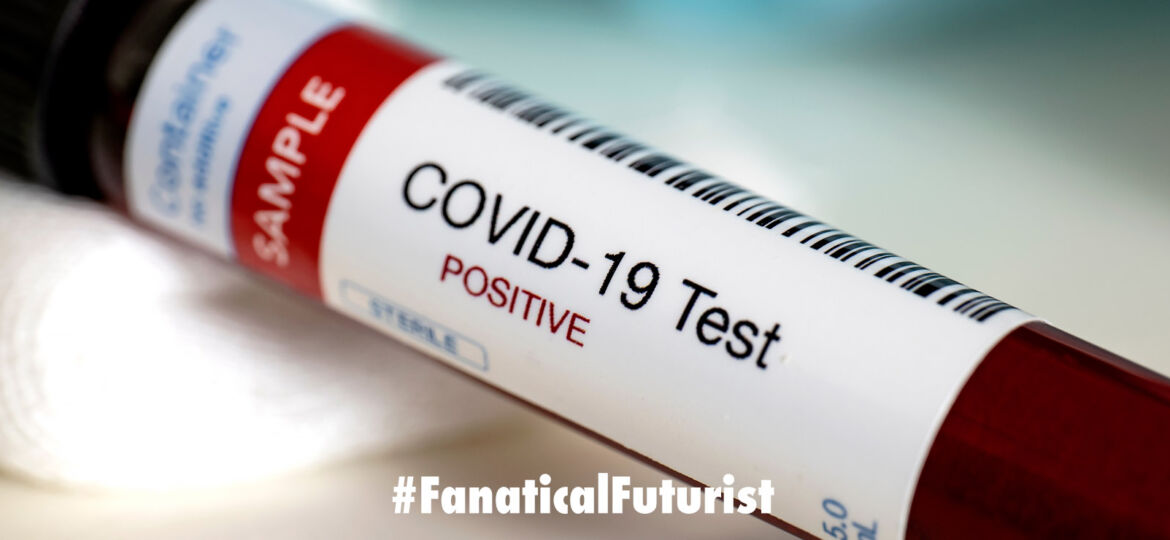
WHY THIS MATTERS IN BRIEF
As governments around the world tell people with COVID-19 like symptoms to self isolate a shortage of testing kits mean self-diagnosis is a guessing game, this helps alleviate the problem.
 Interested in the Exponential Future? Connect, download a free E-Book, watch a keynote, or browse my blog.
Interested in the Exponential Future? Connect, download a free E-Book, watch a keynote, or browse my blog.
As the COVID-19 coronavirus pandemic increases its grip on the world with a surge of cases and India putting over 1.3 billion people into lockdown and robots being used in hospitals to treat COVID patients and ease the pressure on healthcare workers, one of the major questions on the vast majority of people’s minds will likely be: Am I infected or not, and if so what next? And as experts around the world suggest that in time up to 80 percent of the world’s population could get the virus, and a seemingly overwhelming shortage of testing kits, it’s very hard to get an answer.
A while ago I wrote an article about how the UK NHS was trialling Bot based diagnosis of illnesses on over a million Londoners, and yesterday the US Centers for Disease Control and Prevention announced they’d developed and launched a bot over the weekend “to help people make decisions about what to do if they have potential symptoms of COVID-19.”

Clara in action. Courtesy: CDC
Called Clara the “Coronavirus self-checker,” which you can access via the link provided, the bot was created in partnership with Microsoft. While COVID-19 has been declared a global pandemic by the World Health Organization, Clara is intended for use by people currently in the US. According to the CDC, as of March 22, there were more than 15,200 cases in the US and 200 deaths.
In a statement, Microsoft said screening patients who have cold or flu-like symptoms to determine who needs “access to limited medical resources” creates a “bottleneck that threatens to overwhelm health systems coping with the crisis.” Its Healthcare Bot uses Artificial Intelligence (AI) and is intended to help the CDC answer more queries, enabling medical professionals to look after patients who need critical care, the company said.
Clara, however, is not intended to be used for diagnosis or treatment purposes. The questions walk users through symptoms and then gives recommendations if they need medical care.
In its statement, Microsoft said that customized versions of its Healthcare Bot, across all providers who use it, are now “fielding more than 1 million messages per day from members of the public who are concerned about COVID-19 infections – a number we expect to escalate quickly to meet growing needs,” so as the virus continues its rampage by using tools like Clara governments around the world are hoping they can alleviate some of the pressures on front line medical staff while at the same time providing people with access to the valuable information and services they need during these unprecedented times.
















